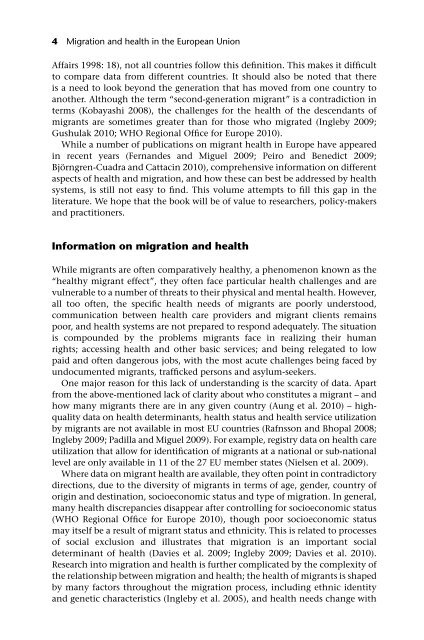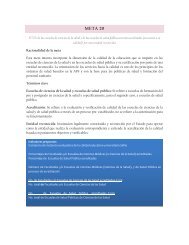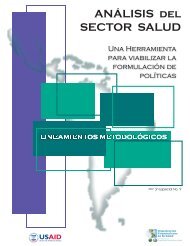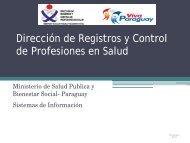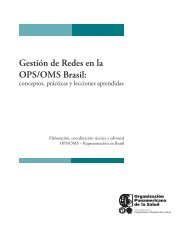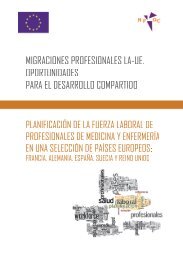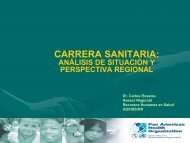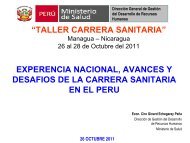English - World Health Organization Regional Office for Europe
English - World Health Organization Regional Office for Europe
English - World Health Organization Regional Office for Europe
Create successful ePaper yourself
Turn your PDF publications into a flip-book with our unique Google optimized e-Paper software.
4 Migration and health in the <strong>Europe</strong>an Union<br />
Affairs 1998: 18), not all countries follow this definition. This makes it difficult<br />
to compare data from different countries. It should also be noted that there<br />
is a need to look beyond the generation that has moved from one country to<br />
another. Although the term “second-generation migrant” is a contradiction in<br />
terms (Kobayashi 2008), the challenges <strong>for</strong> the health of the descendants of<br />
migrants are sometimes greater than <strong>for</strong> those who migrated (Ingleby 2009;<br />
Gushulak 2010; WHO <strong>Regional</strong> <strong>Office</strong> <strong>for</strong> <strong>Europe</strong> 2010).<br />
While a number of publications on migrant health in <strong>Europe</strong> have appeared<br />
in recent years (Fernandes and Miguel 2009; Peiro and Benedict 2009;<br />
Björngren-Cuadra and Cattacin 2010), comprehensive in<strong>for</strong>mation on different<br />
aspects of health and migration, and how these can best be addressed by health<br />
systems, is still not easy to find. This volume attempts to fill this gap in the<br />
literature. We hope that the book will be of value to researchers, policy-makers<br />
and practitioners.<br />
In<strong>for</strong>mation on migration and health<br />
While migrants are often comparatively healthy, a phenomenon known as the<br />
“healthy migrant effect”, they often face particular health challenges and are<br />
vulnerable to a number of threats to their physical and mental health. However,<br />
all too often, the specific health needs of migrants are poorly understood,<br />
communication between health care providers and migrant clients remains<br />
poor, and health systems are not prepared to respond adequately. The situation<br />
is compounded by the problems migrants face in realizing their human<br />
rights; accessing health and other basic services; and being relegated to low<br />
paid and often dangerous jobs, with the most acute challenges being faced by<br />
undocumented migrants, trafficked persons and asylum-seekers.<br />
One major reason <strong>for</strong> this lack of understanding is the scarcity of data. Apart<br />
from the above-mentioned lack of clarity about who constitutes a migrant – and<br />
how many migrants there are in any given country (Aung et al. 2010) – highquality<br />
data on health determinants, health status and health service utilization<br />
by migrants are not available in most EU countries (Rafnsson and Bhopal 2008;<br />
Ingleby 2009; Padilla and Miguel 2009). For example, registry data on health care<br />
utilization that allow <strong>for</strong> identification of migrants at a national or sub-national<br />
level are only available in 11 of the 27 EU member states (Nielsen et al. 2009).<br />
Where data on migrant health are available, they often point in contradictory<br />
directions, due to the diversity of migrants in terms of age, gender, country of<br />
origin and destination, socioeconomic status and type of migration. In general,<br />
many health discrepancies disappear after controlling <strong>for</strong> socioeconomic status<br />
(WHO <strong>Regional</strong> <strong>Office</strong> <strong>for</strong> <strong>Europe</strong> 2010), though poor socioeconomic status<br />
may itself be a result of migrant status and ethnicity. This is related to processes<br />
of social exclusion and illustrates that migration is an important social<br />
determinant of health (Davies et al. 2009; Ingleby 2009; Davies et al. 2010).<br />
Research into migration and health is further complicated by the complexity of<br />
the relationship between migration and health; the health of migrants is shaped<br />
by many factors throughout the migration process, including ethnic identity<br />
and genetic characteristics (Ingleby et al. 2005), and health needs change with


